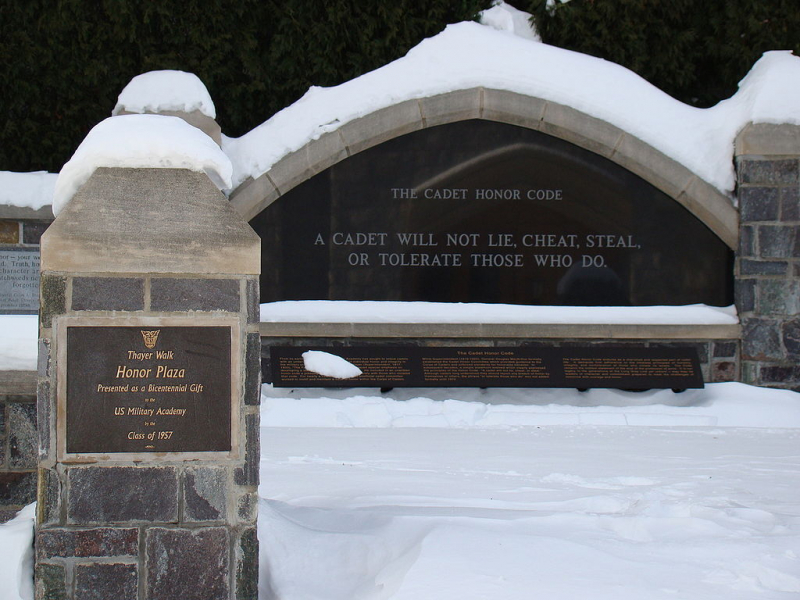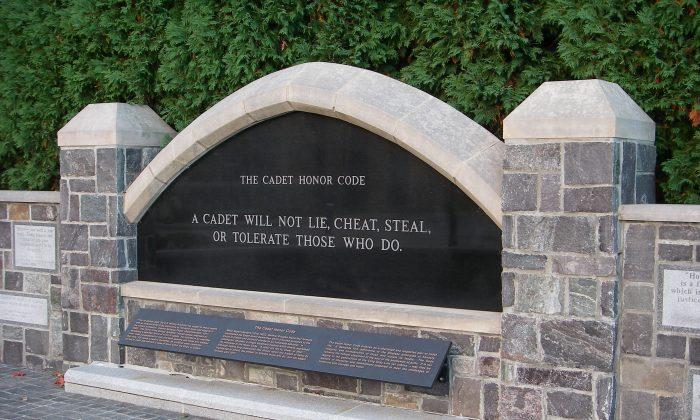The moral training of cadets in the Academy must follow the honor code
By adhering to the honor code and participating in the academy's official leadership programs, cadets strengthen their moral and ethical values during their whole time as members of the military. These include engagement with staff and professors who serve as role models, learning about the ideals of the military profession through Professional Military Ethics Education (PME2), voluntary religious activities, and a robust guest speaker schedule. The motto of West Point, "Duty, Honor, Country" serves as the cornerstone of its ethical code.
According to the West Point Cadet Honor Code, a cadet will not lie, cheat, steal, or tolerate others who do. A hearing and investigation procedure is in store for cadets who are suspected of breaking the honor code. They risk severe repercussions, such as being "turned back" (repeating an academic year) or expulsion from the Academy if they are found guilty by a jury of their peers. Prior to 1973, when it came under intense public criticism, cadets utilized an unofficial punishment known as "silencing" to enforce collective condemnation by refusing to talk to other cadets who were allegedly breaking the honor code.
Despite the fact that the Academy's honor code is highly recognized and has had a considerable impact on many other schools and institutions, there have been a number of serious infractions. For instance, 151 junior cadets were expelled from school in 1976 for "violating the honor code" during tests. More than 70 cadets were also charged with test fraud in 2020.
To conclude, cadets must adhere to moral and ethical values by the code of honor:
- Participating, and learning about the ideals of the military profession, and voluntary religious activities with the motto of West Point, "Duty, Honor, Country".
- Not lying, cheating, stealing, or tolerating people who do so.
- Although the Academy's code of honor is highly regarded, there are still some serious violations.












